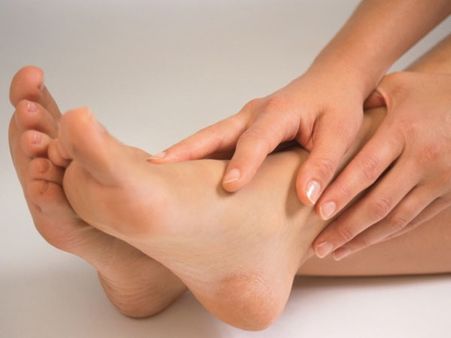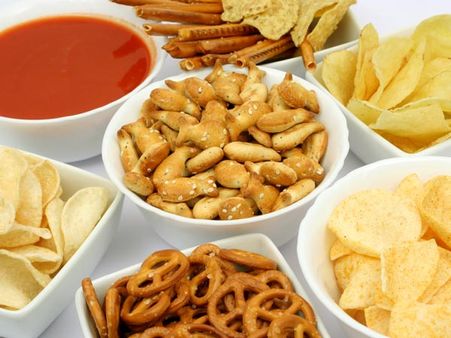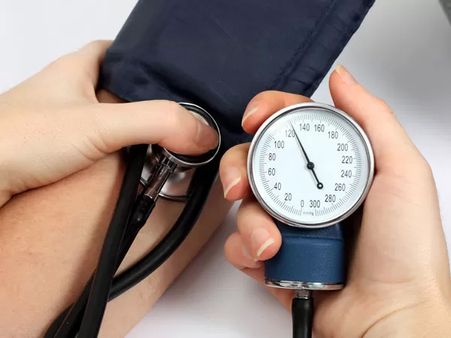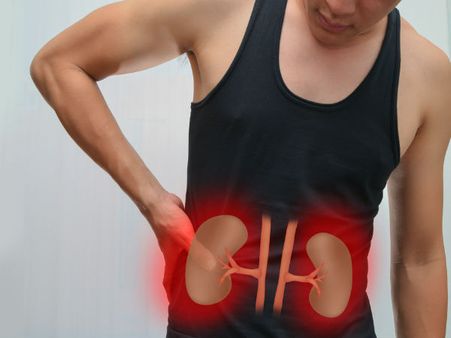Just In
- 26 min ago

- 3 hrs ago

- 7 hrs ago

- 10 hrs ago

Don't Miss
- Movies
 Masaba Gupta Expecting First Child With Hubby Satyadeep Misra; Neena Gupta Shares Excitement In VIRAL Post
Masaba Gupta Expecting First Child With Hubby Satyadeep Misra; Neena Gupta Shares Excitement In VIRAL Post - Finance
 7:1 Bonus, Rs 778.75/Sh Dividend In 20 Yrs: Infosys To Offer Massive Rewards, Up Next Rs 28/Sh Payout Soon
7:1 Bonus, Rs 778.75/Sh Dividend In 20 Yrs: Infosys To Offer Massive Rewards, Up Next Rs 28/Sh Payout Soon - Sports
 PBKS vs MI Live Score, IPL 2024 Updates: Ishan Kishan departs Early
PBKS vs MI Live Score, IPL 2024 Updates: Ishan Kishan departs Early - News
 Social Media Users Laud Gujarat Titans' Fangirl, Call Her Ana de Armas' Lookalike
Social Media Users Laud Gujarat Titans' Fangirl, Call Her Ana de Armas' Lookalike - Technology
 Nothing Ear, Ear a With ANC, Up to 42.5 Hours of Battery Launched; Check Price and Availability
Nothing Ear, Ear a With ANC, Up to 42.5 Hours of Battery Launched; Check Price and Availability - Education
 PSEB Class 10 Toppers' List 2024, Check the Ranks of Toppers
PSEB Class 10 Toppers' List 2024, Check the Ranks of Toppers - Automobiles
 All About Electronic Stability Control ESC: Working & Advantages
All About Electronic Stability Control ESC: Working & Advantages - Travel
Telangana's Waterfall: A Serene Escape Into Nature's Marvels
7 Warning Signs Of Eating Too Much Salt
Salt enhances the taste of our mood and no food, without salt, is good to taste. However, too much of salt intake can cause many health-related complications. You must add salt in low or moderate amounts to your food.
Processed, packaged and junk foods contain a lot of salt in them that you may not be aware of. The quantity of salt used may be much higher than the recommended limit. Limiting salt consumption alone is not enough; however, you must avoid these artificial foods as well.
What Happens To Your Body When You Eat Too Much Sugar?
A teaspoon of salt contains about 2,000 milligrams of sodium and the recommended amount is less than 2,300 milligrams per day. This is nearly about one teaspoon of salt. Now, you can imagine how much quantity of salt intake you have exceeded by this recommended amount of sodium.
Stop Unhealthy Food Cravings Naturally!
Excess salt in our diet can lead to short-term and long-term health effects as well. You must pay a close attention to the warning signs of excess salt consumption. Before excess salt intake leads to a serious damage, our body gives early warning signals to show that we must limit its intake.
Here are some of the warning signs of excess salt intake.

Excessive Thirst
Eating more sodium makes you feel too thirsty often because too much of it disrupts the fluid balance in the cells. The excess salt in the body pulls the water out of the cells into the bloodstream. This causes the brain to send signals to the body that it needs water, and thus we crave for water.

Bloating And Stomach Upset
Excess salt causes accumulation of fluids inside the body and makes you feel bloated. This makes us feel uneasy and uncomfortable. The fluid build-up increases the blood volume, and thus load on your heart increases. This can pose a risk for people with high blood pressure.

Swelled Hands And Feet (Oedema)
Salt causes accumulation of fluids in the hands and feet, causing them to swell. This condition is medically known as oedema. This can be very harmful for those who have pre-existing kidney disease or high blood pressure.

Cravings For Salty Foods
The excess salt in the body increases the cravings for salty foods, which can further complicate the problem. Eating salty foods and snacks will also make the taste of other food items feel bland. These salt cravings are an indication that there is too much salt in your diet.

High Blood Pressure
Since salt causes accumulation of fluids in the body, this in turn increases the volume of the blood present inside the blood vessels. This raises the pressure of the blood, as it puts more pressure on the heart, brain and kidneys. The extra pressure on the insides of your arteries causes rise in blood pressure.

Weak Bones
Excess salt intake causes loss of calcium from the bones through the urine. This causes weak and fragile bones. Post-menopausal women, who already have calcium loss from bones, must avoid excess salt in their food at all costs.

Kidney Stones
High salt intake increases the load on kidneys, as more water increases the volume of blood. This causes the kidneys to work harder to remove the excess water outside the body. Since calcium is lost from the bones and is present in urine, excess calcium may get accumulated in the kidneys and form kidney stones.
Buy Best Health Insurance Plans
-
 wellnessHealth Warnings That Your Periods Are Sending
wellnessHealth Warnings That Your Periods Are Sending -
 wellnessHarmful Effects Of Juice Detox On Your Body
wellnessHarmful Effects Of Juice Detox On Your Body -
 wellnessWhy You Should Not Eat Instant Noodles
wellnessWhy You Should Not Eat Instant Noodles -
 diet fitnessBenefits Of Running Everyday
diet fitnessBenefits Of Running Everyday -
 wellnessHealth Benefits Of Rosemary Tea
wellnessHealth Benefits Of Rosemary Tea -
 wellnessMake Your Liver Healthy With These Home Remedies
wellnessMake Your Liver Healthy With These Home Remedies -
 wellness10 Myths And Facts About Water
wellness10 Myths And Facts About Water -
 nutrition11 Reasons To Eat Walnuts Everyday
nutrition11 Reasons To Eat Walnuts Everyday -
 nutrition10 Worst Breakfast Foods To Start Your Day
nutrition10 Worst Breakfast Foods To Start Your Day -
 wellness10 Red Fruit & Veggies You Should Eat!
wellness10 Red Fruit & Veggies You Should Eat! -
 wellness20 Health Benefits Of Eating Nuts
wellness20 Health Benefits Of Eating Nuts -
 nutrition10 Healthy Treats To Eat After Dinner
nutrition10 Healthy Treats To Eat After Dinner


 Click it and Unblock the Notifications
Click it and Unblock the Notifications



